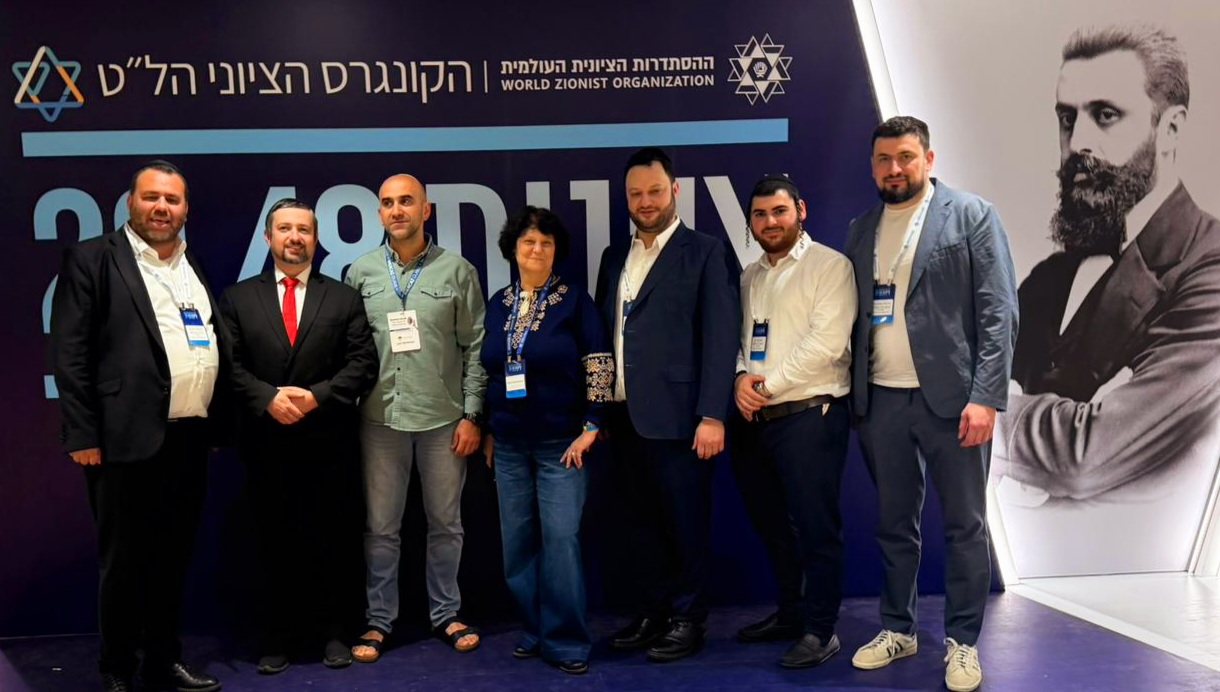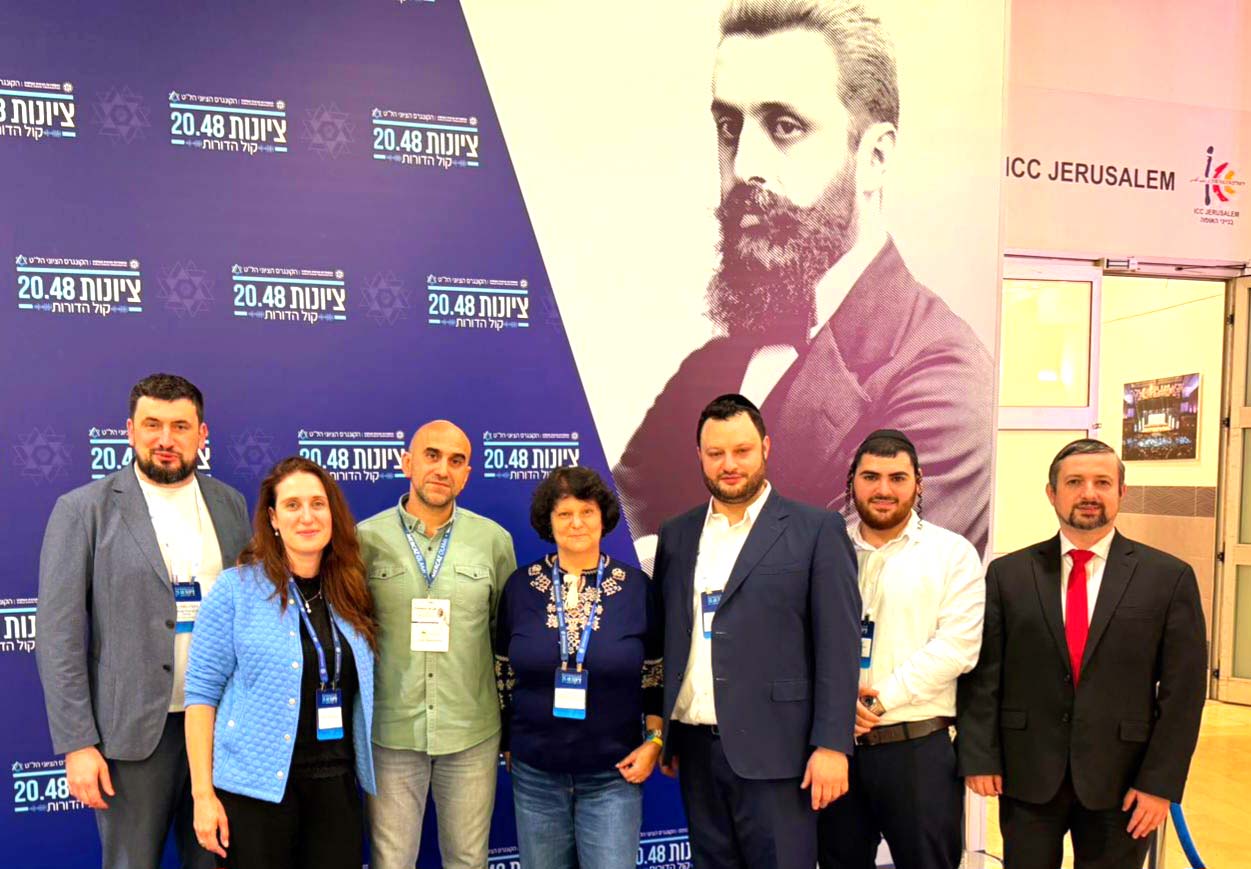World Zionist Congress Delegates: "We support Ukraine and demand a just peace for it"

The Ukrainian delegation at the 39th World Zionist Congress initiated the adoption of a statement in support of Ukraine. Signatures of representatives from Jewish communities worldwide are currently being collected for this pro-Ukrainian declaration.
The World Zionist Congress, which convenes every five years and represents the Zionist movement on a global scale, commenced its work in Jerusalem at the end of October 2025. After several days of stormy meetings in the Israeli capital, the Congress switched to online mode. It will continue its work until the end of November.
Although the main discussions at the Congress concern Israel's future development, confronting antisemitism, and strengthening ties between Jewish communities in the Diaspora and Israel, the topic of Ukraine was also raised among the delegates to the global Jewish summit.
Five Ukrainian representatives submitted a resolution in support of Ukraine to the delegates. This information was reported to the UJE portal by Hennadii Biloritsky, the head of the Zionist Federation of Ukraine (ZFU), a lawyer from Kyiv.
Signatures are currently being collected among representatives from different countries around the world under the following statement:
"We, representatives of National Zionist Federations at the 39th World Zionist Congress, strongly condemn the Russian aggression against Ukraine and express our support for the Jewish community in Ukraine, which continues to suffer constant attacks and destruction.
Systematic shelling with artillery, rockets, and drones of peaceful cities and towns across Ukraine results in numerous civilian casualties, the destruction of infrastructure, and the loss of innocent lives. These massive attacks affect not only areas near the front line but also settlements far from it, including Ukraine's capital, Kyiv.
Russian attacks also destroy cultural and religious objects in Ukraine, including Jewish ones. In October 2025 alone, the synagogue in Kherson was damaged for the second time in a month, and the day before, the main synagogue in Kyiv (known as the Podil Synagogue) was struck by a drone.
In light of the above, we call for the immediate cessation of hostilities and attacks on Ukraine's civilian infrastructure. We support the efforts of the international community aimed at ending the war and establishing a lasting and just peace for Ukraine."
The first faction of the Congress to sign this statement was the religious party Shas, represented by its delegates: Rabbi Shlomo Elhadad (France), Rabbi Saadia Elhadad (Canada), Rabbi David Ezra Menachem (Great Britain), Rabbi Marcus Ohana (Argentina), Joe Mansour (United States), Victor Aisenberg (Brazil), and Sharon Marcel Benadi (Gibraltar).
All five Ukrainian delegates also signed this declaration.
It is worth mentioning in detail about the Ukrainian representatives at the Congress. Their elections took place in the last days of July 2025, conducted through an electronic voting system, despite the ongoing war. The technical reliability, security, and transparency of such voting were checked and approved by the leadership of the World Zionist Organization.

One thousand six hundred seventy-six voters were registered with the Zionist Federation of Ukraine. Of those, 1,357 people (81%) participated in the vote. The majority voted within Ukraine (916 people). But another 441 cast their votes while in Romania, Hungary, Germany, Israel, and Poland. These were Jewish citizens of Ukraine who temporarily left the country due to Russian aggression.
The majority of votes were cast in the cities of Kyiv, Dnipro, Odesa, Lviv, Chernivtsi, and Kharkiv.
An interesting feature of the elections for the Zionists of Ukraine was the victory of religious parties. Of the five seats at the World Zionist Congress that were given to Ukraine, three seats were won by representatives of Orthodox Judaism:
1) Nachman Steinberg from Shas (with votes from Uman, Dnipro, and the Hasidic movement Chabad);
2) Shimon Cohen — the list "Eretz HaKodesh/Holy Land" (votes from Odesa);
3) Hennadii Biloritsky — the religious-Zionist movement " Mizrachi" (votes from Kyiv, Kharkiv, Khmelnytskyi, and Budapest).
The other two seats from Ukraine were won by Lev Kleiman, from the conservative movement "Merkaz Olami" (Chernivtsi and Odesa), and Mykola Feingold from the non-religious list "Ahdut—Beiteinu", representing the party "Our Home Israel" of Avigdor Lieberman.
The ruling Likud party in Israel performed very passively and ineffectively in the elections in Ukraine. As a result, the party of Israeli Prime Minister Benjamin Netanyahu took only sixth place among the Zionists of Ukraine. It did not receive a delegate to the Congress.
Together with the delegates to the Congress, Olena Zaslavska, the executive director of the Zionist Federation of Ukraine, also arrived in Jerusalem.
According to Hennadii Biloritsky, the head of ZFU, the elections of delegates from Ukraine ended peacefully and without conflict — unlike in the USA and Great Britain, where election results were appealed in courts.
On the eve of the elections, the World Zionist Organization tried to reduce Ukraine's quota from five to four delegates, arguing that this was due to the significant migration of Jews from Ukraine during the three years of the war. But Ukrainian Jews convinced Jerusalem that Jewish refugees in Europe planned to return to Ukraine after the war. As a result, Russia's quota was reduced from 10 to 9 seats, and the seat taken from the Russian Federation was given to the delegate of Belarus.
The Zionist Federation of Ukraine was established in the late 1990s by the well-known Jewish and Ukrainian public figure and human rights activist Josef Zissels.
Currently, a statement in support of Ukraine and a just peace for it is being signed by delegates of the World Zionist Congress from different countries around the world.
Text: Shimon Briman (Israel).
Photos: Hennadii Biloritsky (Ukraine).



















